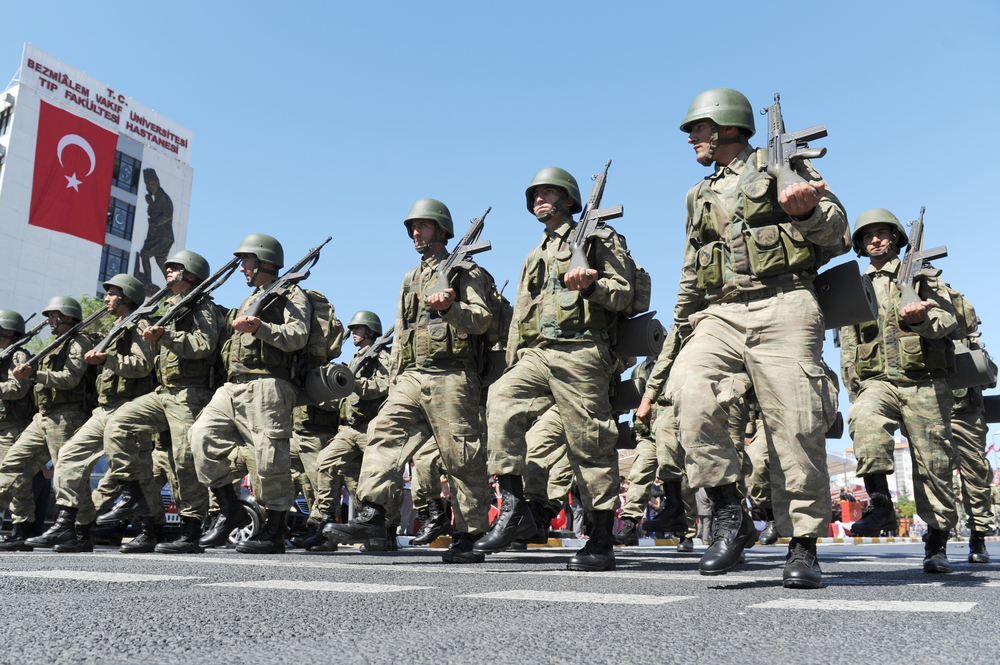Turkey seeks to exploit Russia’s preoccupation with its war in Ukraine to reap the greatest political, economic and security gains in Syria, bolstered by an awareness of its importance to Moscow, given its control over passage in the Black Sea. Turkey could also serve as an economic breathing space for Russia, following severe Western sanctions.
Turkey has therefore moved to expand its military and economic influence in Syria, as illustrated by its military incursions into Kurdish areas inside Syria, in order to undermine the self-administration project of the Syrian Democratic Forces and enhance the presence of loyal Syrian factions in oil and gas rich areas of the north. While Russia’s attentions are turned elsewhere, Turkey hopes to achieve a number of strategic objectives, including:
Strengthening economic presence in Idlib: Turkey seeks to exploit Russia’s preoccupation by expanding its economic investment in Syria. Idlib has lately witnessed a significant surge in Turkish economic presence, as its residents and administrators have begun trading Turkish rather than Syrian currency, after it was devalued against the dollar. The Syrian-Turkish border in Idlib has also become a conduit for consumer, food and industrial imports from Turkey. In areas loyal to Turkey, a number of development and economic projects have been initiated with the help of Turkish companies.
Weakening Russia’s presence in Syria: Turkey’s stance regarding implementing article 19 of the 1936 Montreux Treaty, which allows it to close navigation through the Straits of the Bosporus and Dardanelle, is linked to limiting Russian presence in Syria. Russia has relied on the sea bridge from Sevastopol to Tartus, through the straits of the Bosporus and Dardanelle, to transport its military equipment and logistical needs to Syria since it became involved in the crisis in 2015. By 2017, Moscow had allocated most of the modern battleships of the Black Sea Fleet to operate within the Mediterranean Fleet Force, strengthening Russian influence in this vital area, where Ankara’s interests’ conflict with Moscow’s over several issues such as Cyprus and Libya.
The closure of the Bosporus and the Dardanelle appears to be a covert move to reduce Russian influence in Syria, by blocking Russia’s Black Sea Fleet ships from traveling back and forth to Syria. Turkey’s decision to disable navigation in the Bosporus and Dardanelle makes Moscow dependent on air transport, linking Russia to its base in Latakia, which is intended only for the transport of logistical materials.
Undermining Turkey’s adversaries in Syria: Turkey believes that the war in Ukraine could shift the balance between the regional and international players on the Syrian scene, leaving Turkey in a better position vis-à-vis its opponents . This is particularly true regarding the US, which has good relations with the Syrian Democratic Forces, and supports Syrian-Kurdish self-determination. The US also opposes the Turkey labelling the Syrian Kurdish Democratic Union party as a “terrorist organization.”
Russia’s retreat is also conducive to strengthening Turkish capabilities in the face of regional opponents, particularly Iran, which supports the Syrian regime, and opposes Turkish military interventions in northern Syria. Turkey’s rivalry with Iran in northwestern Syria, specifically Idlib, is intense. Thus far, Moscow, which is firmly in control of this area, had appeared to be more closely aligned with Tehran. Russia’s retreat may be a golden opportunity for Turkey to curb Iranian influence in what Turkey believes is its own sphere of influence within Syrian territories.
Stabilizing pro-Turkish factions: Turkey is hoping to strengthen the presence and influence of loyalist factions in Syria, as Russian involvement in Ukraine allows the ceasefire agreement signed on 5 March 2020 a greater opportunity, in Idlib, Homs, Hama and Latakia. This would allow Syrian factions loyal to Turkey to strengthen their military presence in additional locations in the north. This is especially significant because the Syrian regime’s capabilities in these areas appear weakened, and the regime relies mainly on Russian air capabilities to confront pro-Turkish factions.
In this context, Russia’s retreat could lead to a vacuum inside Syria, leaving more room for Turkey and its allied factions, as Moscow has played a role restraining Turkish ambitions in the face of the Kurdish project in northern Syria.
While Turkey may be able to make gains in Syria while Russia is focused on the conflict in Ukraine and countering the international pressure and economic sanctions it is now facing, it also faces challenges. If Moscow succeeds in winning the confrontation in Ukraine, or if the crisis ends with an understanding between Russia and the West, this will significantly reduce Turkey’s margin for maneuver in Syria. Moreover, a Russian victory in the Ukrainian crisis may lead Russia to put pressure on Turkey to abandon the Islamist groups its supports, thereby placing additional pressure on pro – Turkish Syrian factions. All this would weaken Turkish influence in Syria.
The prospect of a prolonged war in Ukraine could also lead Moscow to intensify its pressure on Turkey in Syria, in response to the closure of the Black Sea Straits, and supplying Ukraine with Turkish drones. Despite the focus of its military efforts in Ukraine, Russia still has sufficient resources to continue its military presence in Syria, using forces such as the Wagner Group.
In conclusion, it can be said that there are potential gains for Turkey in Syria due to Moscow’s preoccupation with Ukraine, and the possible effects of Western sanctions, which are likely to decrease Russian activity in other regions. However, these gains remain contingent upon the course of conflict in Ukraine and Russia’s ability to resolve it successfully.


